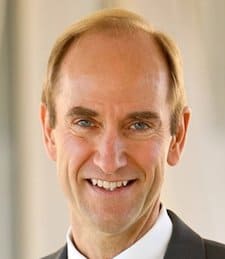
By Rob Thames
“Don’t go walking around like you just hit a triple – when you were born on third base.”
– unknown
“He wants to know why your skin is white and his is black,” clarified my translator. The Tanzanian boy, about 10 years old, was pointing to the skin on his hand and then to mine. His question in this remote kijiji (Swahili for village) was as arresting and profound as the inequities in global health.
My global interdisciplinary health team was in Africa as part of a feasibility assessment in partnership with a Tanzanian team to determine how to improve health in the region near Lake Tanganyika, which borders western Tanzania. While Tanzania is considered a low-resource, less developed country, the western region is considered the least developed area within this ‘third world’ country.
The local team was dedicated and committed to make a difference in the health of the people in the region. They believed that they needed a hospital and many clinics to do this since they knew that my colleagues and I had led hospitals and clinics in the U.S. and in eastern Tanzania. But my team was convinced that exporting the U.S. acute care model was not going to help them improve health, at least not nearly as much as investing the few available resources in other more impactful social determinants of their health. In addition, the local team did not have the resources, expertise or mission to expand the existing healthcare system.
First world population health is not an effective solution for Third world health challenges. First world population health efforts are often supported on the back of an acute care funding chassis: a hospital or healthcare system with access to a reimbursement system to sustain it. By design and nature, first world population health is typically incremental: icing on the core fee-for-service reimbursement cake.
Because of the shortage of available resources, third world health challenges require mindful attention to, and investment in, the most impactful determinants of health. The approach must integrate agriculture/food security, water access and sanitation, income/jobs, a behavioral change system and, most importantly, the evolution of some cultural norms along with a whole new level of partnering and talent management.
Panelists at the October 2019 Minneapolis-based Global Health Ministries Annual Conference concluded that both First and Third world population health share a common problem: the lack of a sustainable business model to support health improvement (instead of the perverse dependency on payment for sick care). With a conference theme of Global Problems, Local Solutions, leaders and global professionals who work in areas from Central America and Africa to Minnesota shared their innovations in community-based primary healthcare and related community partnerships for health. But, while healthcare providers derive economic sustenance from well-established sick and injury care reimbursement, efforts that clearly improve health and reduce the demand for healthcare services largely depend on philanthropy or the “Robin Hood” magnanimity of healthcare systems to fund community health improvement efforts.
The Tazanian boy’s question was not skin deep. He, and most of his kijiji, had not seen a “mzungu” (white person), much less one who exceeded their average life expectancy (two decades lower than the U.S), was one-half foot taller than their average adult male and was in good health – all in one. In his question, he was calling out many inequities as dramatic as black and white. I felt a triple OW*:
- OW! – these inequities were painful to confront;
- Our World – these inequities are not First or Third world, they are Our World problems; and
- One World – we need global “One World” perspective, socio-business model innovation and partnerships to sustainably address these inequities.
————————————————
*You can make a difference. The hashtag symbol happens to be on the ‘3’ key: join the 3OW (#OW) social justice health movement.
Rob Thames serves as director of Global Health Administration Partners. He writes about global health and healthcare leadership at robthames.com.
The Editorial Team at Healthcare Business Today is made up of skilled healthcare writers and experts, led by our managing editor, Daniel Casciato, who has over 25 years of experience in healthcare writing. Since 1998, we have produced compelling and informative content for numerous publications, establishing ourselves as a trusted resource for health and wellness information. We offer readers access to fresh health, medicine, science, and technology developments and the latest in patient news, emphasizing how these developments affect our lives.







